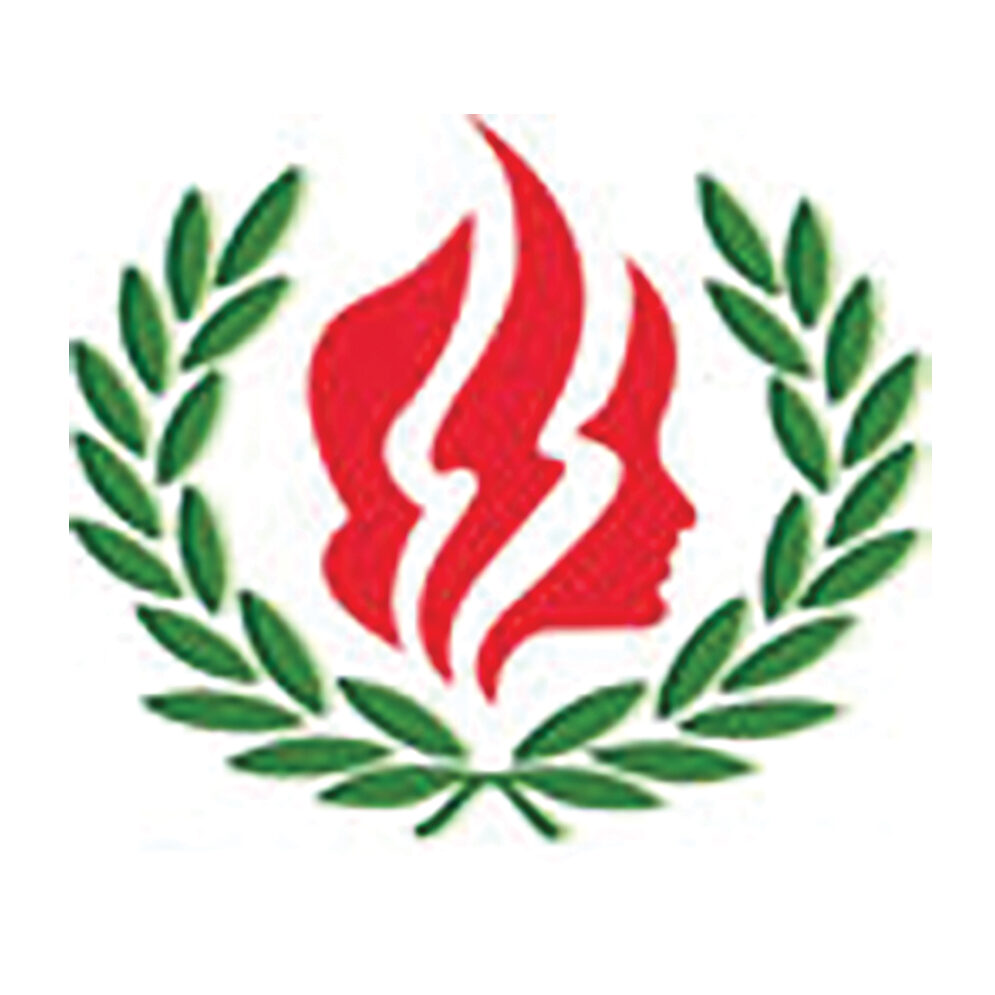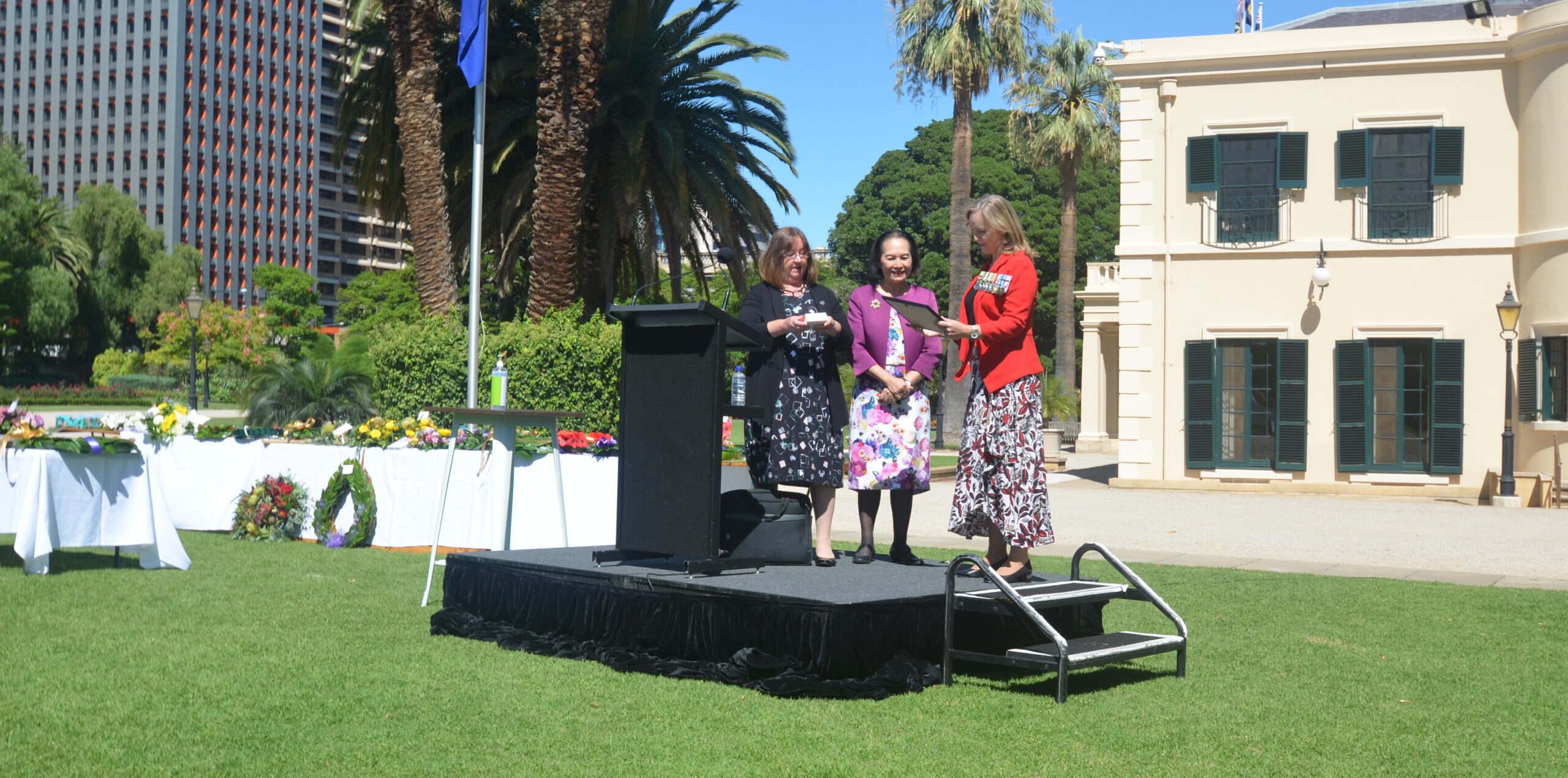Good morning ladies and gentlemen, girls and boys, distinguished guests.
I welcome the veterans who have served, those that continue to serve and the families that love and support them. As we say in the Air Force Association, we are united in service and sacrifice, and I thank you all for your service and for the sacrifices that you have made and continue to make on behalf of our Nation. We gather today to specifically commemorate the service and sacrifice of 21 Australian Nurses and to mark the 79th anniversary of the day on which their lives were so brutally taken in the waters off Radji Beach.
We continue to remember and to reflect upon the circumstances in which their young lives were ended, as theirs is a story of unimaginable human atrocity, committed during the deadliest human conflict in our living memory. It is a moment in our history that should never be forgotten and one which we must each strive to ensure, never happens again.
Today, we also acknowledge the life of Vivian Bullwinkel, who survived execution and internment as a prisoner of war, and yet lived a life in the service of others, and in honour of her sisters who died beside her. Amid the challenges of our own time, she is an example to us all, and I sincerely thank you all for coming together today, in their honour.
I am a proud Australian veteran. A Returned Service Nurse. I have devoted my life to providing care to the men, women and families of the Australian Defence Force and I have been privileged to provide life changing and lifesaving care to men, women, and families across the world. In doing so, I have come to understand one great indelible truth – life is momentary.
It can only be lived one moment at a time, and no single moment of our lives will ever truly define who we are. We are shaped, created and defined by every moment of our lives. When we pause to remember these women, we are justifiably horrified by the circumstances of their deaths, but here, today, I implore you to not allow them to be defined by that one moment.
To never forget, and to never allow it to be forgotten, how these amazing young Australian women lived and all that they achieved in their lives. Their lives shaped them to choose to become nurses and amid global adversity they chose to leave the safety of their homes in Australia, in the hope that others may live. In their final moments they chose to remain with the sick and injured, as Matron Irene Drummond reminded them, “while there is life, there is hope.”
They are so much more than names on a memorial, so much more than their uniforms or the roles that they fulfilled, and their lives were so much more than the circumstances in which they died. They were daughters, granddaughters, sisters, friends. Let us honour and celebrate their lives and their service as much as we commemorate and mourn their sacrifice.
Let us come to understand their individual stories, just as well as we know the story that binds them for eternity. Let us be inspired and ever thankful that they lived! As a Registered Nurse, I have witnessed our veterans face significant adversity and I have witnessed them defiantly rise with resilience. They are better educated and better equipped than any generation of veterans that precedes them.
They are also required to be more adaptable to a diverse range of deployments than ever before. Today’s veteran has likely served on Peacekeeping operations; in war; in response to terrorist bombings; natural disasters such as tsunamis, earthquakes, bushfires and floods; international training and advisory roles; and today they are doing whatever they can to assist to protect Australia from a global pandemic – staffing hospitals, manning airports and border checkpoints and providing transport, logistics and health intelligence, to name just a few.
These young men and women are amazing. They may be justifiably proud to walk in the footsteps of those that have gone before them. But for some of our veterans, the experience of adversity and challenge is far greater after their service, than it ever was in any war or operation. Most Australian veterans enjoy good health. They lead happy and fulfilling lives, built upon the firm foundation of their Defence service. And that is exactly what we want for them.
For some Australian veterans however, it is challenging to accept and progress past the fact that service life has ended. Navigating the pathway from service life to civilian life can be turbulent for a veteran and their family. It is a period known as “transition” and several mitigable factors have been identified, as making this experience a potentially challenging one.
For me, I joined the Australian Defence Force to serve my country. This privilege filled me with immense pride. But when I learnt that, due to the injuries sustained in the course of my service, I was no longer fit to serve, that immense pride was replaced with grief and shame. My sense of purpose, value and respect was deeply enmeshed in my service. I tied my worth to my uniform. My uniform was my identity. It told a story about me – my service, my rank, my name and title, my operational experience. When I no longer wore the uniform, I and many others defined me by how my service ended, not by how it was lived.
South Australian Women Play Fields Trust Bangka Island Commemorative Ceremony Government House, South Australia 14th February 2021 I no longer carry that shame. It remains true that I am not physically fit enough to serve, but that does not diminish the pride and sense of achievement I feel for having served. It does not diminish the promise of the life that still lay ahead of me. The life built upon the foundation of my Defence service.
Life is momentary. Lived one moment at a time, no single moment of my life will define who I am. Whilst some veterans may grieve the loss of their service, may this never diminish the fact that they served. May it never diminish the promise of life that still lay ahead of them. Let us shift the narrative surrounding our veterans from one of challenges to one of achievements. From adversity to resilience. From post-traumatic stress to post-traumatic growth.
Let us not be defined by the way in which our stories end, but by the magnificent pages and chapters that make us who we are. Let us honour and celebrate life as much as we commemorate and mourn sacrifice. Whilst we must never forget how our Australian service nurses died on Radji Beach, nor the great sorrow felt by those who remain, we must equally never forget how they lived. When I pause to listen to these nurses, those that went before me, and forged a path for me to follow, I hear one resounding request: “Define us not by how our stories ended, but by how they were lived.”
In the words of John McRae, a Canadian doctor who served in the First World War: Short days ago we lived, felt dawn, saw sunset glow, Loved and were loved. To you from failing hands we throw the torch; be yours to hold it high. In honour of our nurses, in honour of all Australian veterans and their families, let us grab that torch with both hands and hold it high.
Lest We Forget.

